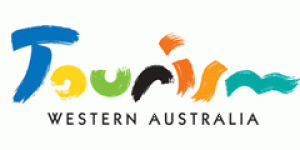Tourism Western Australia launches community driven whale shark campaign

Tourism Western Australia launched a new Facebook campaign to share and support research into one of Western Australia’s most extraordinary visitor experiences, swimming with the world’s largest fish, the whale shark.
Through the campaign, Tourism WA will work with whale shark research and conservation organisation ECOCEAN and call on its Facebook community to support its adoption of a whale shark by ‘liking’ a series of posts, the first which is set to go live tomorrow. Through the adoption, the community will be able to follow the whale shark’s movements, including its return to Western Australian waters in future seasons.
Tourism WA’s Director Domestic Marketing, Toni O’Donnell, said Western Australia’s Ningaloo Reef was one of the few places on Earth where people could swim alongside these majestic gentle giants of the deep, which can grow up to 18 metres.
“The annual whale shark migration to Ningaloo is one of Western Australia’s truly extraordinary experiences attracting visitors from around the world,” Ms O’Donnell said.
“The campaign is a chance for Tourism WA to give back to its highly engaged online community, while supporting important research and conservation efforts to ensure the experience remains sustainable for future generations to enjoy.”
One of ECOCEAN’s key initiatives is its whale shark photo-identification library, a visual database of whale shark encounters.
ADVERTISEMENT
Director of ECOCEAN Brad Norman said the spots on each whale shark were unique and by receiving photo submissions of individual whale sharks, the program could track their movements.
“To date, ECOCEAN has catalogued more than 41,000 images and received more than 18,000 reported sightings from around the world,” Mr Norman said.
ECOCEAN also runs the whale shark adoption program which maintains the global identification library and supports existing whale shark research projects. Adopters receive updates about their whale shark and its where-a-bouts, based on sightings and photo submissions received from around the world.
Ms O’Donnell said because photo-tracking relied on human encounters with individual whale sharks it could be difficult to maintain a steady stream of information, so in order to provide regular updates to the community, Tourism WA would also partake in ECOCEAN’s tagging program.
“The tagging program will support ECOCEAN’s research efforts whilst also enabling Tourism WA’s Facebook community to remain in contact with its adopted whale shark,” she said.

